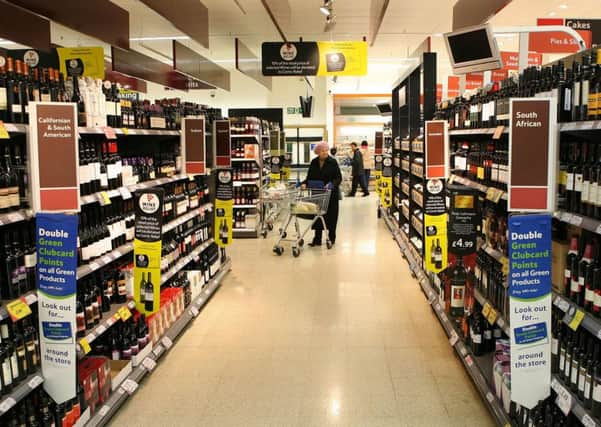Half of alcohol sold will be more expensive with minimum pricing


Analysis of till sales at nearly 1,200 stores found at least 50 per cent of alcohol does not meet impending legislation, with the figure rising to 69 per cent for spirits and 67 per cent for beer.
The price of blended whisky will need to rise by 20 per cent to meet the threshold, while vodka would have to increase by 16 per cent.
Advertisement
Hide AdAdvertisement
Hide AdLast month, the Scottish Government won its legal fight to introduce the legislation after the Court of Session threw out an objection from the Scotch Whisky Association.
The proposed 50p per unit price is likely to mean a bottle of spirits would cost at least £14, while cheap cider could double in price.
Data analysts Nielsen, who carried out the latest research, said the legislation would lead to the “near extinction” of drink deals and could encourage cross-border alcohol shopping.
When looking at the top 50 selling products in each category, instead of total volume sales, 76 per cent of the most popular spirits do not meet minimum pricing compared to 74 per cent in beer, 54 per cent in cider and 12 per cent in wine, researchers said.
But analysts said the legislation could actually benefit the drinks industry, leading to increased revenue.
Marika Praticó, senior client manager at Nielsen, said: “As long as any potential decline in demand doesn’t exceed 12.5 per cent, the industry will benefit thanks to the higher price point.
“Premium brands, particularly in spirits, are likely to benefit as the price differential between them and cheaper brands diminishes, so it’s a good time for people to trade up to the more expensive brands, which is likely to have a negative impact on supermarkets’ own-label offerings.”
The Scotch Whisky Association said it had yet to decide whether to appeal the Court of Session ruling.
Advertisement
Hide AdAdvertisement
Hide AdHead of Communications Rosemary Gallagher said: “The Scotch whisky industry has long argued that minimum pricing would be ineffective in tackling alcohol-related harm, while also constituting a trade barrier and impacting on a significant proportion of whisky sold in the Scottish market.”
Public Health Minister Aileen Campbell said: “Minimum unit pricing is the most proportionate and effective way to reduce the harm caused specifically by cheap, high strength alcohol.”